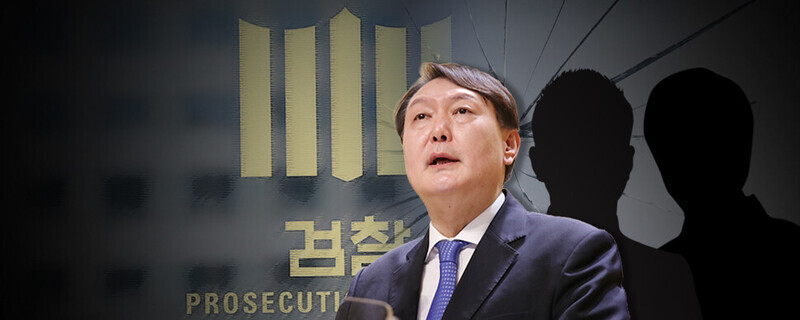hankyoreh
Links to other country sites 다른 나라 사이트 링크
[Column] “Fake” fake news is threatening liberal democracy


Did you hear the rumors about the “eight-stage strategy for Islamic infiltration of Korea”?
The first stage of this fabricated strategy was for Muslims to identify as a peace-loving minority group while they only represented 1% of the country’s population. But then as Muslims came to represent more than half of the population, the strategy would shift to ethnic cleansing and massacres, with the final stage of implementing theocratic rule taking effect once the entire population was Muslim.
That “strategy” dates back to 2008, when unconfirmed rumors claimed that there were 10,000 or 20,000 Muslim missionaries operating in Korea, that the Muslim population had risen to 300,000 and that some 2,500 Korean women were marrying Muslim immigrants to Korea each year. The “strategy” even quoted a “secret report” supposedly produced by the CIA. The goal held by Muslim groups, it was said, was to bring Korea under the sway of Islam by 2020!
I did what we’d now call a “fact check” of these urban legends about Islam in a January 2009 article and was rewarded for my efforts with complaints and criticism for quite some time afterward. Feedback ranged from mild complaints about a “naïve reporter being hoodwinked by the Muslims” to more vicious messages suggesting “if you like Islam so much, you should marry your daughter to a Muslim.”
Here we are at the end of 2023, and I’m still not a Muslim, and in fact hardly ever see any Muslims here in Korea. I guess the Muslim leaders’ “vision” for 2020 didn’t quite pan out!
Looking back, it all seems so silly and hysterical, but at the time, Islamophobia was running rampant.
“When I’m crossing the street, kids who see me say, ‘There goes a terrorist, there goes an al-Qaida member! That’s hard to take and always pisses me off, but what can you do?” said Jafar Kemal, a Pakistani in his early 30s who was working in Korea at the time.
“More people are looking at us like criminals and avoiding us, and some even audibly curse at us in Korean,” a Kazakh worker in his 30s told me back then.
Now that we’ve grown accustomed to the phrase “fake news,” one might hope that fewer people would fall for such ridiculous rumors. But the fact is that things have only gotten even more confusing.
Over the past few years, the tactic of fake news has been frequently adopted by those who spew discrimination and prejudice against various minorities around the world for their own private gain. But the expression “fake news” entered common parlance when former US President Donald Trump repeatedly used it to refer to unfavorable press coverage. But as Trump insists that any unfriendly coverage is “fake news,” unconfirmed reports about Hamas beheading dozens of babies were passed off as actual news.
“Fake news” has now become little more than political rhetoric. Korean President Yoon Suk-yeol has repeatedly said that “fake news threatens democracy and liberty.” That’s a highly sensible and timely remark, or would be, if Yoon were talking about the “eight-stage strategy for Islam’s infiltration of Korea.”
But Yoon uses the label not only for “real” fake news that strangles democracy with its regurgitation of prejudice and hatred, but also run-of-the-mill coverage of allegations against him, such as Newstapa’s articles exploring the claim that Yoon buried an investigation during his days as a public prosecutor. This kind of “fake” fake news designation is little different from the tactic of producing and distributing “real” fake news.
Yoon and his cronies’ attempt to dampen free speech has no purpose but to serve the political interests of a specific group. That can be inferred from the fact that Yoon’s repeated claims about fake news have received the coordinated backing of not only Lee Dong-kwan, the chair of the Korea Communications Commission; Ryu Hee-lim, the chair of the Korea Communications Standards Commission; and Park Min, the president of KBS, but also the police and prosecution service.
“Fake news” is no longer a useful term for describing reality. At this rate, we’ll have to tell apart “real” fake news and “fake” fake news as we dog-paddle in an inescapable tempest of fake and real articles that must themselves be subdivided into fake and real.
On a recent trip to South Korea, Arthur Gregg Sulzberger, the publisher of the New York Times, called fake news an “insidious” expression.
Looking back, Sulzberger observed, the expression “fake news” is rooted in awful moments in human history, such as the Nazis’ rule over Germany and Stalin’s control of the Soviet Union. Such phrases, the New York Times publisher said, have been used by dictators to tame an independent press and dominate their country.
According to Sulzberger, reporters have recently found that the leaders of 50 countries around the world have been using the expression “fake news” to justify their suppression of press freedoms.
In Korea today, the expression “fake news” has become an even greater threat to democracy and liberty than fake news itself.
Please direct questions or comments to [english@hani.co.kr]

Editorial・opinion
![[Editorial] Intensifying US-China rivalry means Seoul must address uncertainty with Beijing sooner than later [Editorial] Intensifying US-China rivalry means Seoul must address uncertainty with Beijing sooner than later](https://flexible.img.hani.co.kr/flexible/normal/500/300/imgdb/original/2024/0517/8117159322045222.jpg) [Editorial] Intensifying US-China rivalry means Seoul must address uncertainty with Beijing sooner than later
[Editorial] Intensifying US-China rivalry means Seoul must address uncertainty with Beijing sooner than later![[Column] When ‘fairness’ means hate and violence [Column] When ‘fairness’ means hate and violence](https://flexible.img.hani.co.kr/flexible/normal/500/300/imgdb/original/2024/0516/7417158465908824.jpg) [Column] When ‘fairness’ means hate and violence
[Column] When ‘fairness’ means hate and violence- [Editorial] Yoon must stop abusing authority to shield himself from investigation
- [Column] US troop withdrawal from Korea could be the Acheson Line all over
- [Column] How to win back readers who’ve turned to YouTube for news
- [Column] Welcome to the president’s pity party
- [Editorial] Korea must respond firmly to Japan’s attempt to usurp Line
- [Editorial] Transfers of prosecutors investigating Korea’s first lady send chilling message
- [Column] Will Seoul’s ties with Moscow really recover on their own?
- [Column] Samsung’s ‘lost decade’ and Lee Jae-yong’s mismatched chopsticks
Most viewed articles
- 1Xi, Putin ‘oppose acts of military intimidation’ against N. Korea by US in joint statement
- 2For new generation of Chinese artists, discontent is disobedience
- 3[Editorial] Transfers of prosecutors investigating Korea’s first lady send chilling message
- 4[Column] When ‘fairness’ means hate and violence
- 5[Editorial] Intensifying US-China rivalry means Seoul must address uncertainty with Beijing sooner t
- 6How K-pop broke the internet — and broke into the US market
- 7[Exclusive] Unearthed memo suggests Gwangju Uprising missing may have been cremated
- 8‘Shot, stabbed, piled on a truck’: Mystery of missing dead at Gwangju Prison
- 9Naver to acquire Canada’s Wattpad to fuel its IP ambitions
- 10AI, robots won’t free us from work - they’ll make our jobs worse